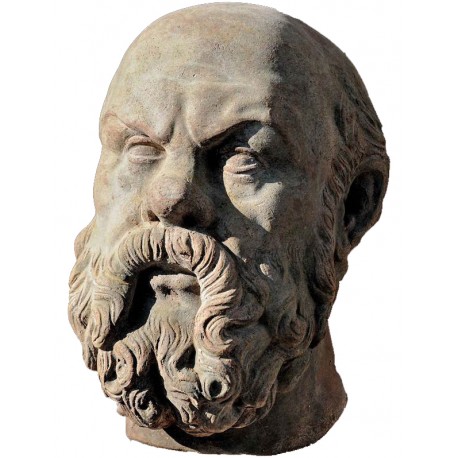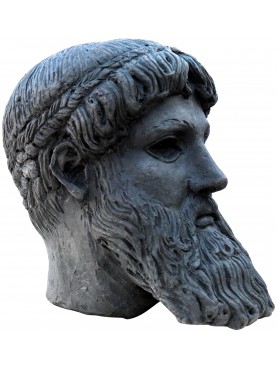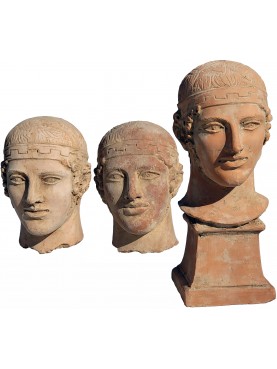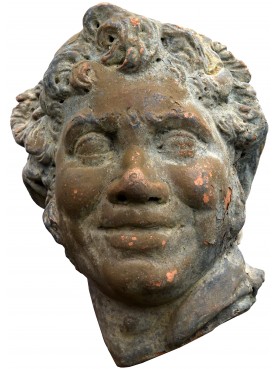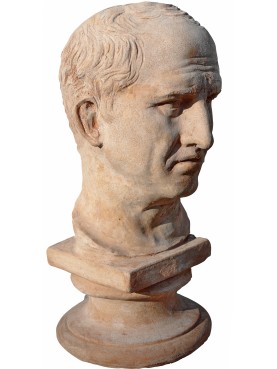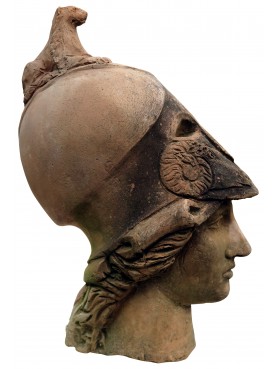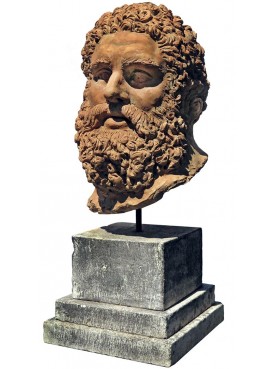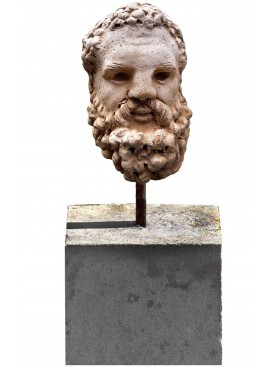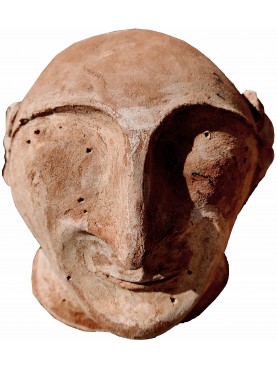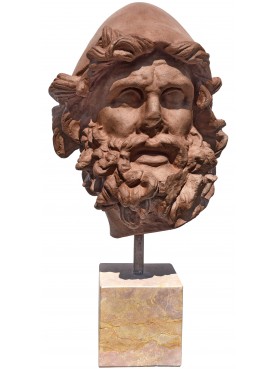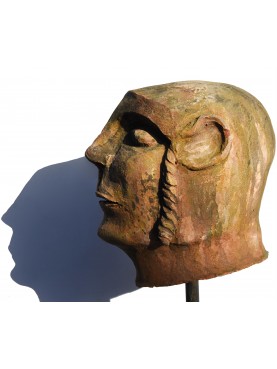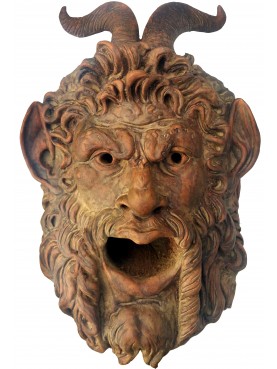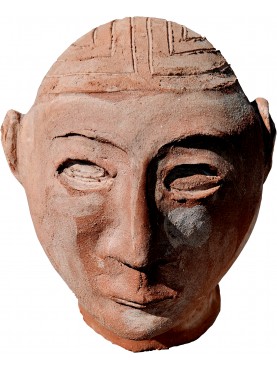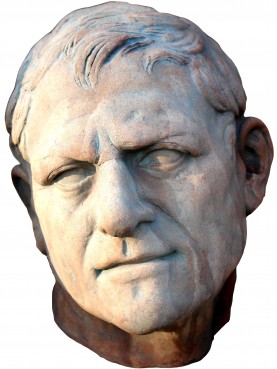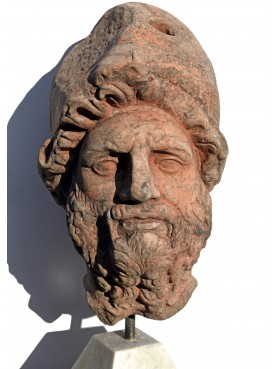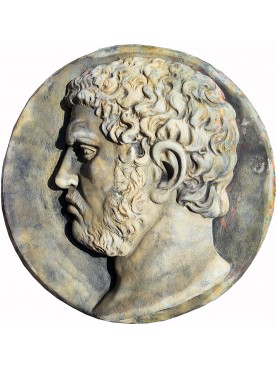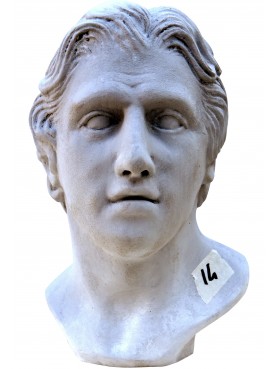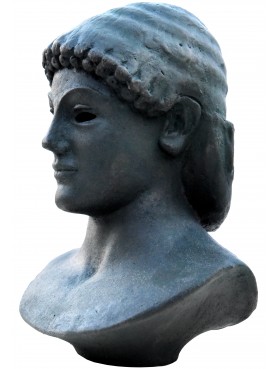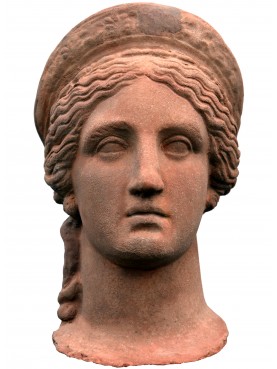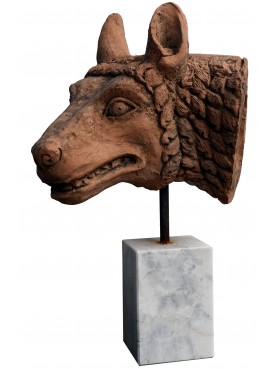Socrates terracotta head - greek head copy
Socrates terracotta head - greek head copy
7497
New
SOCRATES
Greek philosopher (470 - 399 b.C.)
Copy of the statue of Lisippo - exposed Louvre/Paris.
Patinate terracotta.
Data sheet
| Height | 12.99 in | 33 cm |
| Width | 11.81 in | 30 cm |
| Depth | 11.02 in | 28 cm |
| Weight | 17.64 lbs | 8 Kg |
| Manufacturing | Recuperando srl | |
| Material | Terracotta |
More info
Socrates (470 – 399 BC) was a classical Greek (Athenian) philosopher credited as one of the founders of Western philosophy, and as being the first moral philosopher, of the western ethical tradition of thought. An enigmatic figure, he made no writings, and is known chiefly through the accounts of classical writers writing after his lifetime, particularly his students Plato and Xenophon. Other sources include the contemporaneous Antisthenes, Aristippus, and Aeschines of Sphettos. Aristophanes, a playwright, is the only source to have written during his lifetime.
Plato's dialogues are among the most comprehensive accounts of Socrates to survive from antiquity, though it is unclear the degree to which Socrates himself is "hidden behind his 'best disciple'. Through his portrayal in Plato's dialogues, Socrates has become renowned for his contribution to the field of ethics, and it is this Platonic Socrates who lends his name to the concepts of Socratic irony and the Socratic method, or elenchus.
The elenchus remains a commonly used tool in a wide range of discussions, and is a type of pedagogy in which a series of questions is asked not only to draw individual answers, but also to encourage fundamental insight into the issue at hand. Plato's Socrates also made important and lasting contributions to the field of epistemology, and his ideologies and approach have proven a strong foundation for much Western philosophy that has followed.
As Socrates did not write down any of his teachings, information about him and his philosophies depends upon secondary sources. Furthermore, close comparison between the contents of these sources reveals contradictions, thus creating concerns about the possibility of knowing in-depth the real Socrates. This issue is known as the Socratic problem, or the Socratic question.
To understand Socrates and his thought, one must turn primarily to the works of Plato, whose dialogues are thought the most informative source about Socrates' life and philosophy, and also Xenophon. These writings are the Sokratikoi logoi, or Socratic dialogues, which consist of reports of conversations apparently involving Socrates.
As for discovering the real-life Socrates, the difficulty is that ancient sources are mostly philosophical or dramatic texts, apart from Xenophon. There are no straightforward histories, contemporary with Socrates, that dealt with his own time and place. A corollary of this is that sources that do mention Socrates do not necessarily claim to be historically accurate, and are often partisan. For instance, those who prosecuted and convicted Socrates have left no testament. Historians therefore face the challenge of reconciling the various evidence from the extant texts in order to attempt an accurate and consistent account of Socrates' life and work. The result of such an effort is not necessarily realistic, even if consistent.
Two factors emerge from all sources pertaining to the character of Socrates: that he was ugly, and had a brilliant intellect. He lived entirely within ancient Athens, he made no writings, and died of execution by hemlock.

